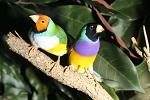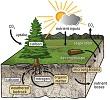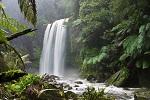Ecology is an interdisciplinary science which studies the interaction between organisms and the biological, chemical and physical aspects of their environments. The word ecology is based from the Greek root oikos which translates to mean house. The environments which organisms reside in, termed ecosystems, are analogous to household units. It is the role of ecologists to study the population dynamics of these different ecosystems to better understand how organisms function within them.
Ecology is not limited to studying solely plants and animals. Ecology is a human science as well. Many ecologists research the patterns of human populations to investigate the demographics of different environments. Furthermore, there are a plethora of practical applications of ecology which extend to the human world. Conservation biology, epidemiology, natural resource management and ecological community planning are only a few examples.
The study of ecology is a multidimensional science in the sense that it conducts research on both small and large scales. Research can be done on individual or population levels which are representative of smaller scales. Conversely, ecologists can also observe the larger picture by analyzing scales such as those at the community and ecosystem levels.
More recently, ecology and evolution are two topics which have become very much intertwined. Since about the 1970s, there has been more research completed by geneticists exemplifying that unique relationships exist in different populations. Populations are the units which evolution influences and these evolutionary processes extend over long time periods. Fortunately, ecological research is particularly useful for collecting long-term data sets.
It is critical to realize that ecology is not analogous to the study of natural history. Although these two fields of study may share some similarities, unlike natural history, ecology is an experimental field of study which requires the collection of data to draw relationships. Nevertheless, the study of ecology is absolutely fundamental to our understanding of population structures and the interaction of organisms within these systems.
References:
Image Credit: aussiegal at flickr.com
© BrainMass Inc. brainmass.com June 27, 2024, 9:04 am ad1c9bdddf



